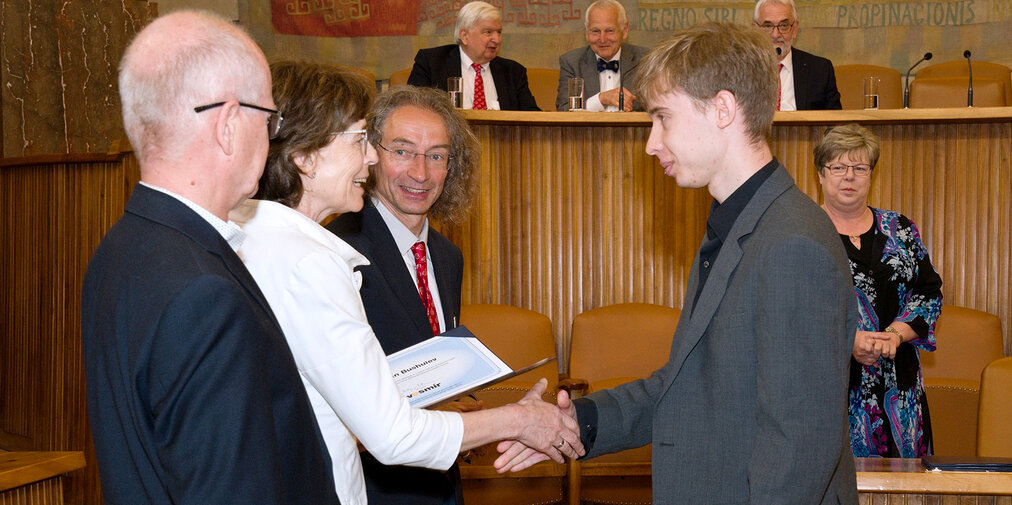
Student Bc. Roman Bushuiev from FIT CTU received the Via Chimica 2022 award for his bachelor thesis entitled Machine-learning prediction of terpene biosynthesis, which he worked on at the Department of Applied Mathematics at FIT CTU, in cooperation with the Institute of Organic Chemistry and Biochemistry of the CAS. Understanding the process of terpene biosynthesis is a step toward a new era of pharmaceutical design. Together with the award, the young scientist will receive a personal bonus of CZK 50,000 from the Experientia Foundation.
The Via Chimica Award for young talents in the field of chemistry, jointly awarded by The Learned Society of the Czech Republic and the Experinetia Foundation, was awarded this year to the student of FIT CTU Bc. Roman Bushuiev. In his bachelor thesis, he designed and tested an algorithm for predicting biosynthetic reactions using machine learning. The evaluation committee particularly appreciated the interdisciplinary focus and innovation of his work.
Roman has always been attracted to science and research. About three years ago, when he was looking for a part-time job while studying computer science at FIT CTU, he was offered to work in a research group at the Institute of Computer Science of the CAS managed by Tomáš Pluskal. The cooperation was great from the beginning, and he got an interesting project on the prediction of terpene biosynthesis. He plans to continue with biosynthesis predictions in the future and believes that one day the fields of biochemistry, mathematics and machine learning will be unified to such an extent that biosynthesis and other natural processes will be perceived as clearly defined operations in formal mathematical spaces.
“In our project, we studied terpenes, the largest group of specialized plant metabolites. I really enjoyed working as part of an interdisciplinary research team. Plus, sciences like chemistry and biology are some of the best, maybe the very best, areas of informatics application. The fact that I’m getting this award for chemistry means that, to some extent, we are able to answer the mysteries of nature through informatics. I find that absolutely fascinating,” adds award laureate Bc. Roman Bushuiev.
Approximately one quarter of all medicines currently produced come from plants. The main source of chemicals for the development of new drugs is the specialized metabolites that plants produce. As the chemical synthesis of specialized metabolites is very challenging, the most sustainable way to produce such molecules in the near future will be their biosynthesis in engineered microorganisms.



